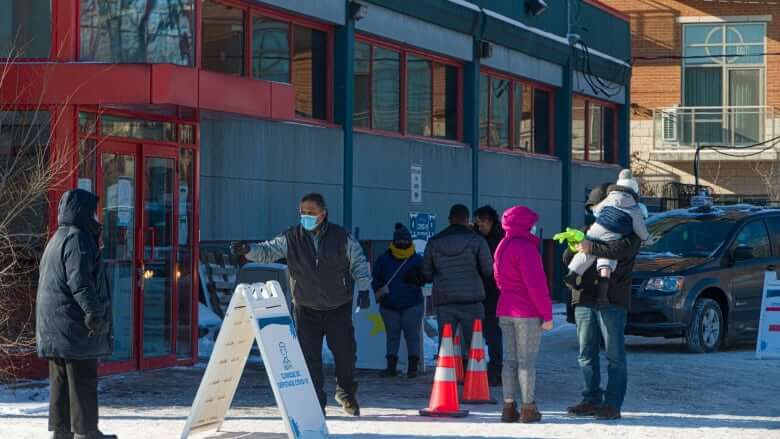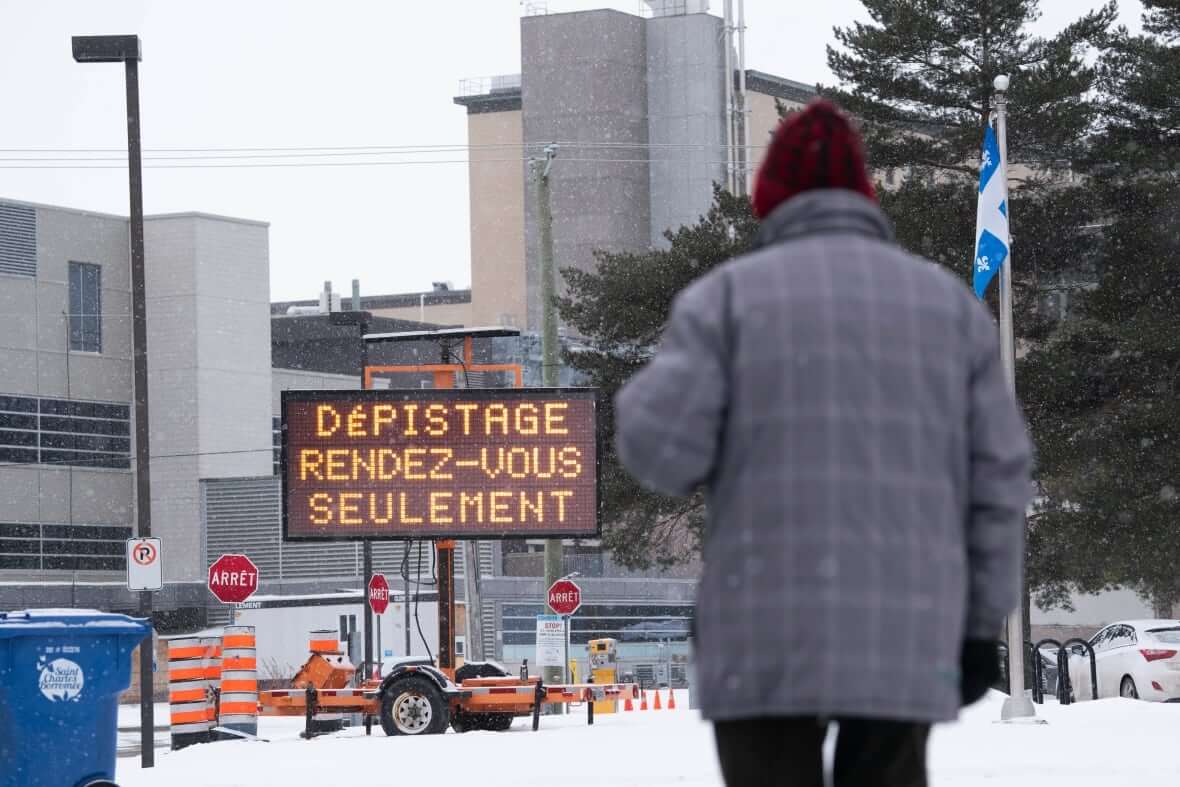Quebec stops PCR tests for general public as Omicron overwhelms system

Faced with tens of thousands of people seeking PCR tests on a daily basis and a dwindling quantity of screening supplies, Quebec public health is putting an end to testing the general public for the coronavirus.
PCR tests will be reserved for those in high-risk settings such as hospitals, long-term care homes, detention centres and homeless shelters, a senior strategic advisor to Quebec public health said during a technical briefing Tuesday.
Northern and remote communities will also be given priority, said Dr. Marie-France Raynault.
“If you are not in a place where there is an active outbreak or in an environment at risk, the general population, for all practical purposes, will not have access to PCR tests,” she said.”We are absolutely overwhelmed by the Omicron wave.”
Nearly 47,000 people underwent a PCR test in Quebec on Tuesday alone, a pace that laboratories and personnel cannot maintain.
“We have a capacity of about 30,000 tests a day, and last week, for example, we had almost 60,000 tests per day and it’s unsustainable,” said Raynault.
Quebec public health is encouraging people to use rapid tests when possible, and if not, to isolate if they are showing symptoms of COVID-19.
Quebec not alone in limiting PCR testing
Quebecers with at least two doses of a COVID-19 vaccine are now expected to isolate themselves for only five days from the time they show symptoms under the new rules. Children under 12 also have a five-day isolation period.
Raynault said studies have shown people are most contagious in the two days before they develop symptoms and in the two to three days after symptoms appear.
Dr. Catherine Hankins, a professor of public and population health at McGill University, said the decision to limit access to PCR tests is a pragmatic one.

Hankins, who is also the co-chair of Canada’s COVID-19 Immunity Task Force, said the health-care system should be focused on accelerating the vaccination campaign and preparing hospitals for more patients, rather than testing.
Université du Québec à Montréal virologist Benoit Barbeau said public health has no other choice but to stop offering PCR tests to the general public as the rapid spread of Omicron has, like in other sectors, lead to a shortage of staff due to infection.
Rather than tracking the number of new infections every day, he said the number of hospitalizations is what officials need to monitor closely.
Unprecedented staff shortage
Meanwhile, Quebec is still faced with a shortage of rapid home tests.
Three million rapid tests are due to arrive in the province late Wednesday afternoon. But the head of a provincial pharmacy association, Association québécoise des pharmaciens propriétaires, said he does not expect distribution to start before Monday.
“I can confirm that it will probably not be this week,” said Benoit Morin, but he remains hopeful that pharmacies will be stocked next week.
And while residents wait for those testing kits to arrive — five tests per adult per month — Quebec’s Ministry of Labour is trying to figure out what to do about the lack of PCR tests as a positive result is required by Quebec’s workplace safety board, CNESST, for a worker to file a claim related to COVID-19.
Employers are going to have to trust their employees, said Raynault.
But employees may abuse the system by claiming they are sick, said Marianne Plamondon, a lawyer who specializes in labour law.
This comes at a time when the Omicron wave has led to an unprecedented level of absenteeism in the workplace.
For example, Radio-Canada has learned that 11,712 health-care workers were out sick as of Monday, and the Montreal police service was missing between 550 to 650 employees as of New Year’s Day — the vast majority of those being uniformed officers.
Regardless of the challenges faced by the province, Raynault said Quebec has not lost control of the situation because intensive care beds remain available.
She said a lower percentage of those hospitalized with COVID-19 are in intensive care than during previous waves of the pandemic.








Redes Sociais - Comentários